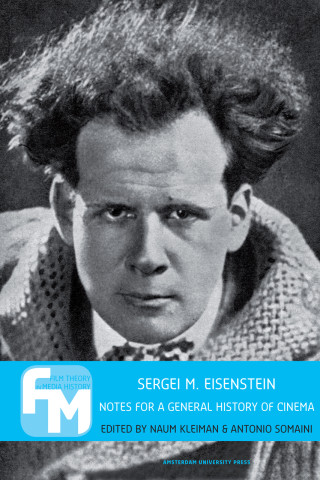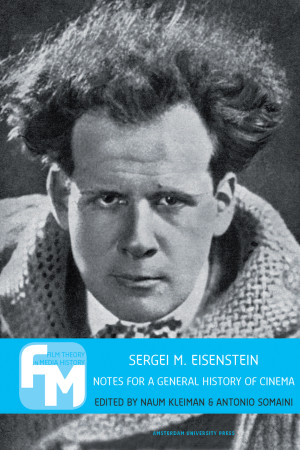Acknowledgements
Editorial Criteria
Naum Kleiman, Foreword
Antonio Somaini, Cinema as "Dynamic Mummification," History as Montage: Eisenstein's Media Archaeology
Part 1 Sergei M. Eisenstein: Notes for a General History of Cinema
1. The Heir
2. Dynamic Mummification. Notes for a general history of cinema
3. Revelation in Storm and Thunder
4. In Praise of the Cine-chronicle
5. The Place of Cinema in the General System of the History of the Arts
6. Pioneers and Innovators
Part 2: Essays
1. Ada Ackerman, What Renders Daumier's Art so Cinematic for Eisenstein?
2. François Albera, "The Heritage We Renounce?" Eisenstein in Historio-graphy
3. Luka Arsenjuk, The "Notes for a General History of Cinema" and the Dialectic of the Eisensteinian Image
4. Nico Baumbach, Act Now!, or For an Untimely Eisenstein
6. Jane Gaines, Eisenstein's Absolutely Wonderful, Totally Impossible Project
7. Abe Geil, Dynamic Typicality
8. Vinzenz Hediger, Archaeology vs. Paleontology: A Note on Eisenstein's "Notes for a General History of Cinema"
9. Mikhail Iampolski, Point - Pathos - Totality
10. Arun Khopkar, Distant Echoes
11. Pietro Montani, "Synthesis" of the Arts or "Friendy Cooperation" between the Arts? The "General History of Cinema" According to Eisenstein
12. Philip Rosen, Eisenstein's Mummy Complex: Temporality, Trauma, and a Distinction in Eisenstein's "Notes for a General History of Cinema"
13. Masha Salazkina, Natalie Ryabchikova, Sergei Eisenstein and the Soviet Models for the Sydt of Cinema: 1920s-1940s
Bibliography
Notes on Contributors
Index of Names

